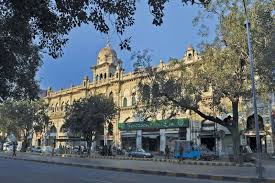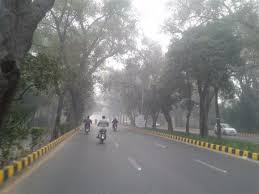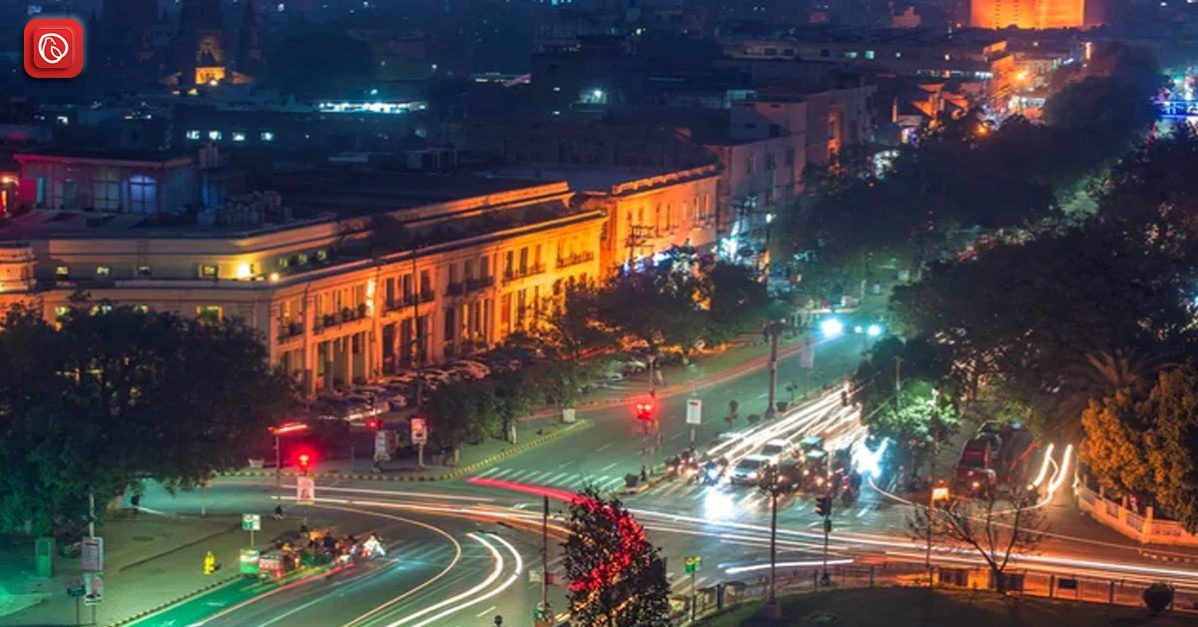Shahrah-e-Quaid-e-Azam, formerly known as Mall Road, is a historic boulevard in the vibrant city of Lahore, Pakistan. Renowned for its architectural grandeur, cultural significance, and historical monuments, this road has evolved into one of Lahore’s most iconic sites. Named after Pakistan’s founder, Quaid-e-Azam Muhammad Ali Jinnah, the road is a blend of colonial charm and modern development, symbolising Lahore’s journey through history. In this blog, Graana.com has come up with detail guide on this historic road.
Historical Background
Mall Road was established during the British colonial period and served as Lahore’s central artery, housing government offices, prominent commercial establishments, and recreational spots. After Pakistan’s independence in 1947, the road was renamed Shahrah-e-Quaid-e-Azam in honour of the country’s founding leader. However, the name “Mall Road” has remained popular among locals.
This road was not only central to the British administration but also became a hub for Pakistan’s cultural and political activities. Many important structures like the Lahore Museum, Punjab Assembly, and educational institutions have defined this road’s historical relevance, making it a place where history and modernity converge.

Iconic Landmarks on Shahrah-e-Quaid-e-Azam
Shahrah-e-Quaid-e-Azam is home to numerous notable landmarks that add to its charm and importance:
Lahore Museum
Established in 1894, Lahore Museum is one of Pakistan’s most prestigious museums. Its architecture is a unique blend of British, Mughal, and Sikh influences, and it houses an extensive collection of artifacts ranging from Gandhara sculptures to Islamic manuscripts.
Punjab Assembly
As the seat of Punjab’s provincial government, the Punjab Assembly building is not only a symbol of legislative governance but also an example of colonial architecture.
Aitchison College
Founded in 1886, Aitchison College is one of the oldest and most prestigious educational institutions in Pakistan. The college’s beautiful colonial architecture adds an educational landmark to this road.
Governor’s House
A grand mansion and residence of the Punjab Governor, the Governor’s House represents both authority and heritage. Although public access is limited, its stunning architecture is a visual treat.
Anarkali Bazaar
Just off Shahrah-e-Quaid-e-Azam is Anarkali Bazaar, one of Lahore’s oldest and most vibrant markets, offering a taste of local culture, crafts, and cuisine.
Architectural Beauty
One of the defining features of Shahrah-e-Quaid-e-Azam is its architecture, which reflects the blend of Mughal, British, and modern influences. The British colonial buildings are distinguished by their unique facades, domes, arches, and intricate detailing. In contrast, contemporary structures and malls add a modern aesthetic, creating a diverse architectural tapestry along the road.
Some of the buildings has restore for their historical value, while others have been propose to serve commercial needs. This combination of preservation and adaptation highlights Lahore’s commitment to honouring its heritage while embracing change.
Commercial Significance
Beyond its historical and cultural importance, Shahrah-e-Quaid-e-Azam serves as a bustling commercial centre. The road houses major shopping centres, offices, and hotels, making it a focal point for both tourists and residents. Here are some key commercial highlights:
Emporium Mall and Liberty Market
These shopping destinations attract locals and visitors alike with an array of national and international brands, traditional bazaars, and dining options.
Hotels and Restaurants
Shahrah-e-Quaid-e-Azam, connected with numerous hotels, including the Pearl Continental Hotel, which caters to business travelers and tourists. Restaurants along the road offer a variety of cuisines, from traditional Pakistani dishes to global delicacies.
Corporate Offices
Many multinational corporations and national businesses have set up offices along this road, underlining its status as a significant business district in Lahore.
Cultural Significance
Shahrah-e-Quaid-e-Azam is not just a physical space; it is a cultural experience. The usage of road is for various cultural events, exhibitions, and parades, which showcase Lahore’s vibrant culture and artistic heritage. Festivals, book fairs, and exhibitions are frequently held here, attracting people from all walks of life. The road thus acts as a bridge, connecting generations and promoting cultural continuity.
Modern Development and Future Vision
In recent years, Lahore’s development authorities have undertaken several projects to maintain the road’s historical structures while improving infrastructure. Efforts have included improving traffic flow, introducing pedestrian pathways, and enhancing security measures to make the road safer and more accessible.
Additionally, eco-friendly initiatives, such as planting trees along the road and reducing pollution, have been implemented to ensure a healthier environment. These ongoing projects highlight the city’s commitment to preserving Shahrah-e-Quaid-e-Azam’s legacy while adapting it to meet modern needs.

FAQs
Related FAQs
1. Why was Mall Road renamed Shahrah-e-Quaid-e-Azam?
Mall Road was renamed to Shahrah-e-Quaid-e-Azam to honour Quaid-e-Azam Muhammad Ali Jinnah, the founding leader of Pakistan. This renaming symbolises respect and recognition for his role in Pakistan’s independence.
2. What are the famous landmarks on Shahrah-e-Quaid-e-Azam?
Notable landmarks include the Lahore Museum, Punjab Assembly, Aitchison College, Governor’s House, and Anarkali Bazaar, each offering historical and architectural significance.
3. Is Shahrah-e-Quaid-e-Azam accessible for tourists?
Yes, tourists can freely explore the road and its landmarks. However, access to some government buildings may be restricted. Tourists are encouraged to visit during daylight for a comprehensive experience.
4. What are some shopping options on Shahrah-e-Quaid-e-Azam?
Popular shopping spots nearby include Liberty Market and Emporium Mall. Anarkali Bazaar, one of Lahore’s oldest markets, is also accessible, offering traditional goods and souvenirs.
5. How has Shahrah-e-Quaid-e-Azam changed over time?
Originally serving as a colonial administrative hub, the road has transformed into a modern commercial and cultural centre. Ongoing development projects aim to preserve its historic essence while adapting it to modern needs.
Conclusion
Shahrah-e-Quaid-e-Azam, with its rich history, architectural marvels, and modern attractions, represents Lahore’s cultural heart. From the colonial era to present-day Pakistan, this road stands as a testament to the city’s resilience and adaptability. Whether you’re a history enthusiast, a cultural explorer, or a commercial visitor, Shahrah-e-Quaid-e-Azam offers a diverse and enriching experience that reflects the essence of Lahore.
Follow Graana blog for more details.




